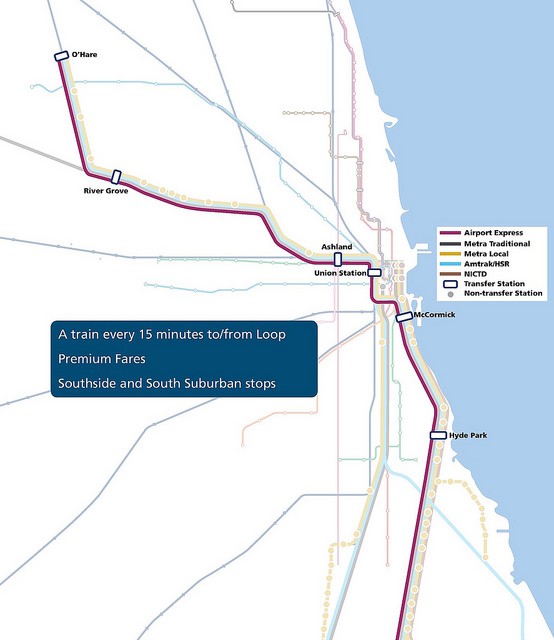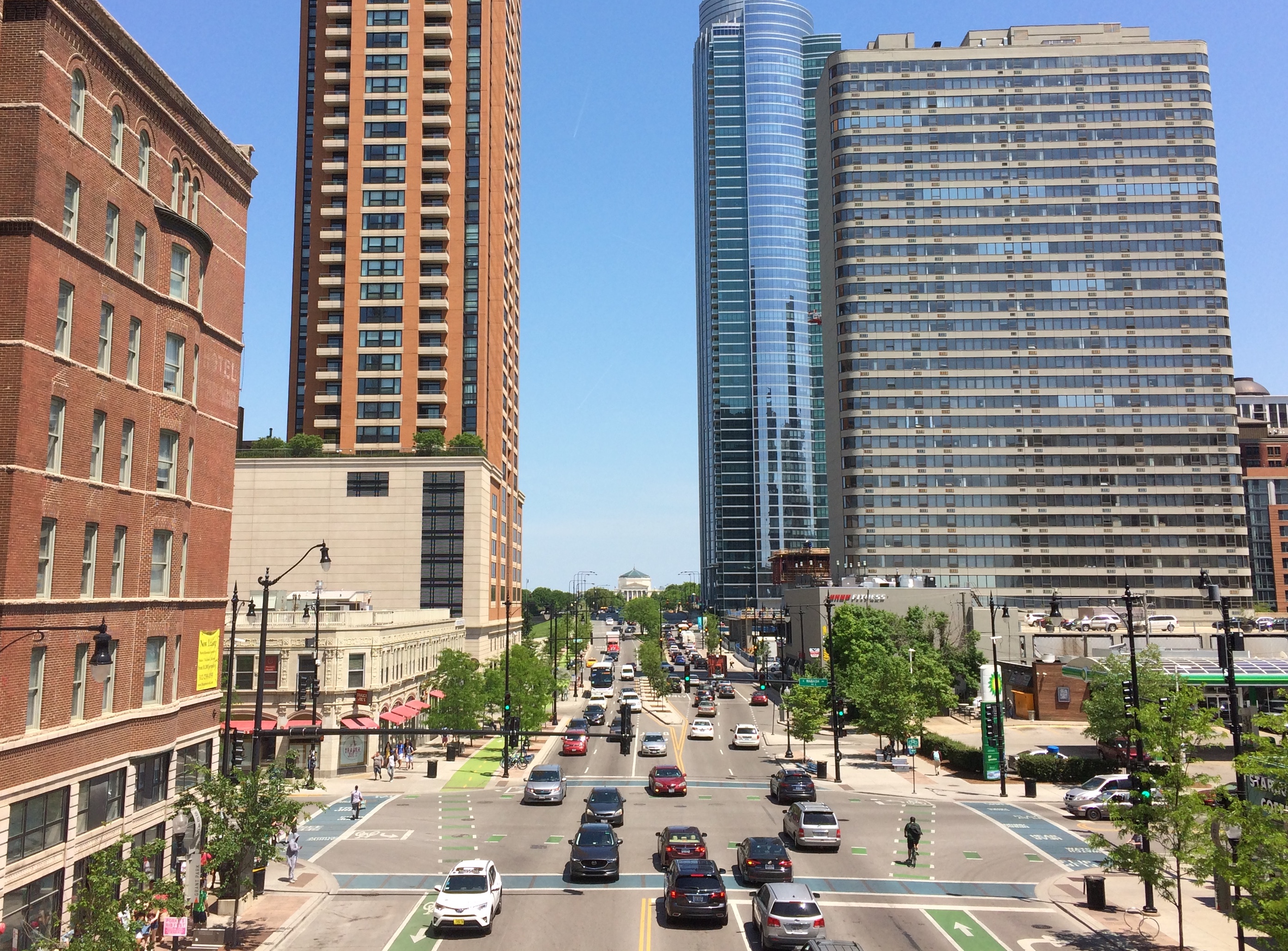With Rahm Emanuel declining to run for a third term, the mayoral race is wide open. As such, it’s a great opportunity to push the candidates to endorse big ideas to make our city’s transportation system more efficient, just, and environmentally friendly.
Thankfully, three of the most important voices in promoting smart, equitable transportation in our city have stepped up to the plate to do just that, by releasing the Chicago Sustainable Transportation Platform this morning. The document is a roadmap for what the next mayor should do to make the city less car-dependent, easier and more pleasant to get around, and more affordable, with an emphasis on getting more residents, of all backgrounds and income levels, involved in the planning process.
Unsurprisingly, two of the people responsible for creating the platform work for Streetsblog Chicago, the region’s transportation news and advocacy website. These include SBC cofounder Steven Vance, who also runs the real estate site Chicago Cityscape and handles policy and zoning-related work for a real estate consulting firm, and Streetsblog reporter and affordable housing advocate Lynda Lopez. The third person is transportation analyst and MIT grad student Yonah Freemark, a former staffer at Chicago’s Metropolitan Planning Council think tank.

The planks of the platform include good ideas that Vance, Lopez and other reporters have discussed many times on Streetsblog, plus brand-new proposals. Bus service needs to be improved across the city via a dedicated funding source, more frequent and longer service, and time-saving strategies like prepaid, all-door boarding, transit-friendly stoplights, and car-free lanes. The next mayor should integrate CTA and Metra service, including implementing rapid transit-style service on some Metra lines, and making Metra fare more affordable, particularly for low-income residents.
The platform also calls for prioritizing people on foot and bikes, including making Vision Zero the primary motivator for street design and traffic enforcement. The bike and pedestrian recommendations also include building more pedestrian streets and plazas, funding a 50 percent expansion of the Divvy system within two years; doubling the number of protected bike lane miles; and encouraging the use of cargo bikes to replace car and truck trips.
In addition, Vance, Lopez, and Freemark ask the next mayor to create high-quality rapid transit lines. This would include immediately identifying and funding a new transit corridor connecting Little Village to Albany Park along the Chicago River corridor, while working with local residents to prevent the ensuing property value increases from causing displacement. They also want to see the CTA resume planning on ‘L’ line extensions, including the Brown Line, the Circle Line, and a West Loop subway, as well as planning for the Midwest High Speed Rail Association's Crossrail proposal, which would build the missing transportation link between the Southeast Side and O’Hare Airport.

The platform notes that most new transit-oriented development in Chicago has been targeted at wealthier residents, so more equitable TOD is needed. Recommendations include revising current regulations to allow for more density at all kinds of buildings near transit; requiring single-family-home builders to pay into the city’s affordable housing fund; and using the Chicago Housing Authority’s surplus funds to build affordable TODs. The next mayor should also eliminate parking requirements for all new construction within two years, which will lower construction and housing costs.
Finally, the platform urges the candidates to commit to stopping wasteful transit projects before they start. This includes requiring the Chicago Department of Transportation, and lobbying the state government, to consider rebuilding North Lake Shore Drive as a pedestrian-friendly surface road, rather than replicating its current car-centric status. The next mayor should also kill Emanuel’s O’Hare Express project, which would mostly serve elites while diverting resources from more pressing neighborhood transportation needs.
The transportation platform website also includes a summary of what the declared candidates have said so far about transportation, sourced from an article on the subject by the Chicago Tribune’s Mary Wisniewski.
You can sign your name to the platform (bottom of the page) to let the candidates know that you want them to adopt these bold, yet sensible, ideas.
![]()
Did you appreciate this post? Consider making a donation through our PublicGood site.




